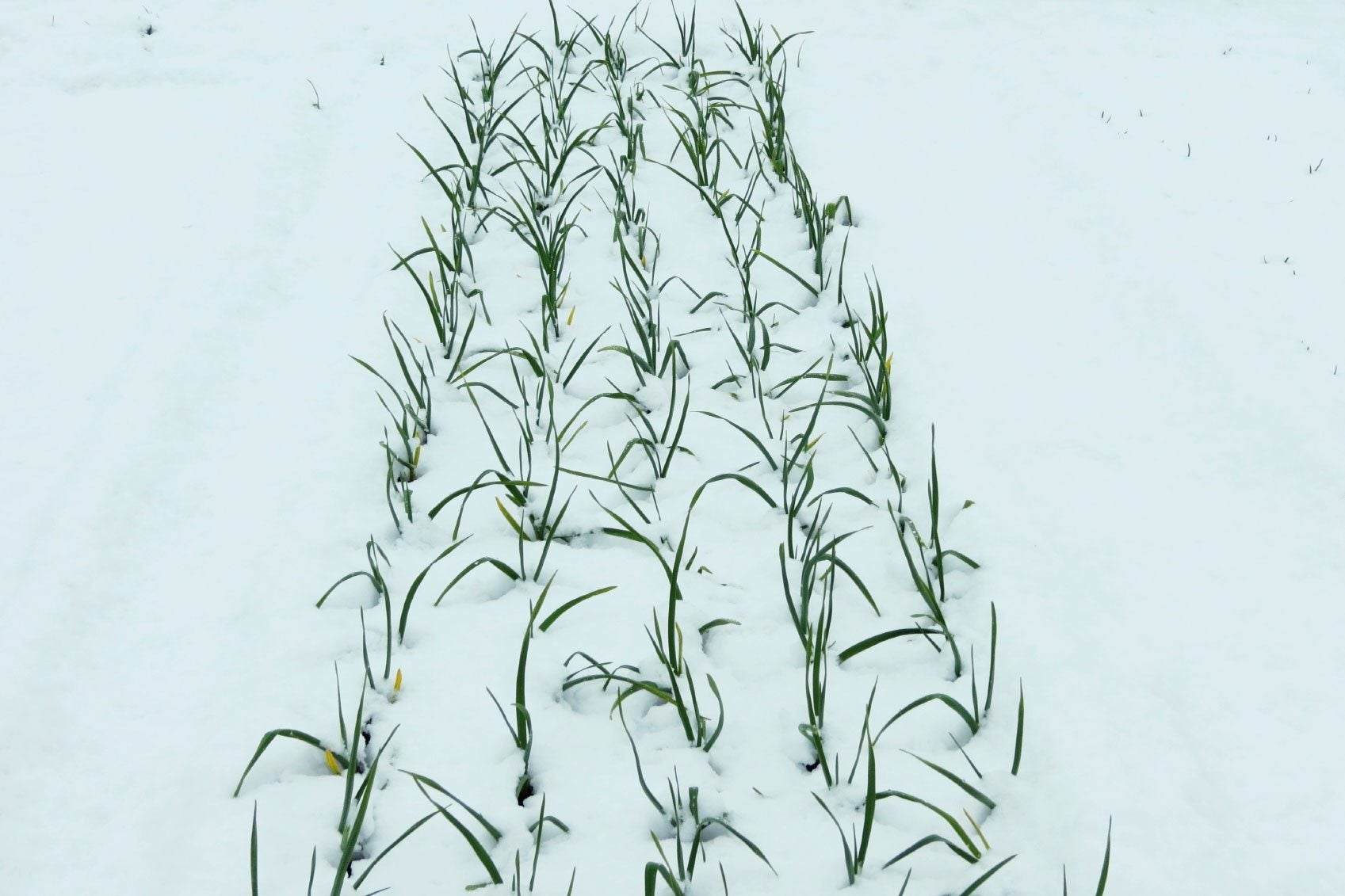Onion Frost And Cold Protection: Can Onions Tolerate Cold Temps


Sign up for the Gardening Know How newsletter today and receive a free copy of our e-book "How to Grow Delicious Tomatoes".
You are now subscribed
Your newsletter sign-up was successful
Can onions tolerate cold temps? That depends on how cold and at what age the onions are. If you're just learning how to grow onions, then it might surprise you to know they are quite hardy and can withstand light freezes and snow. Young starts can be susceptible to heavy freezes and require protection. Onion cold and frost protection are simple, but you need to apply the steps before a hard freeze threatens new sprouts.
Can Onions Tolerate Cold Temps?
Protecting onion plants from cold isn't necessary for some parts of the country, but in the north and even temperate west, severe weather is still possible. New onions and frost can cause damage to the tender young stalks and fragile bulbs. The worst thing that usually happens is the bulb freezes and then rots after it thaws. There are ways, however, to give onion cold and frost protection that are quick and easy.
Onions thrive in a variety of temperature ranges, but they produce the best at 55 to 75 degrees F. (12-23 C.) and most varieties are hardy to 20 degrees F. (-6 C.). They produce bigger bulbs when these temperatures are achieved for the longest time because that allows foliage to form, which will help fuel bulb production. They need a high temperature and low humidity after the bulb forms and curing begins.
Onions also need a long photoperiod to produce large bulbs. Most need between 12 and 15 hours of light, which makes some varieties unsuitable for northern climes. Cold temperatures will slow down bulb production, as do the lower light hours in many northern zones.
How to Protect Onions in Frost
The best way to keep onions and frost apart is with simple mulch. Use an organic mulch that is at least 2 inches (5 cm.) deep when cold and freezing temperatures are expected. Simple bark, straw, pine needles, grass clippings, or other natural mulches are very effective in protecting onion plants from cold. Pull the mulch away from the plants in spring as the ground warms.
If you have enough notice, it is a good idea to water the plants in the morning. Moist soil stays warmer than dry. To prevent any issues in a colder climate, it's best to plant your onions in a raised bed. The deep, fluffy soil will stay warmer and protect the bulbs.
Harvesting and Keeping Onions
Onion bulbs can be harvested when the tops fall over and begin to die back. The bulbs need to be cured for storage. Let them dry in a warm dry area for two weeks or more. It's best to provide good air circulation with a fan. Store onions in a cool, dry location in a ventilated container, like a mesh bag or even a stocking. They can be individually wrapped in foil and stored in the refrigerator for up to a year. Sweet onions have a higher moisture content and, therefore, a shorter shelf life. The really pungent ones are the ones that you can store for longer due to a lower moisture count.
Sign up for the Gardening Know How newsletter today and receive a free copy of our e-book "How to Grow Delicious Tomatoes".

Bonnie Grant is a professional landscaper with a Certification in Urban Gardening. She has been gardening and writing for 15 years. A former professional chef, she has a passion for edible landscaping.